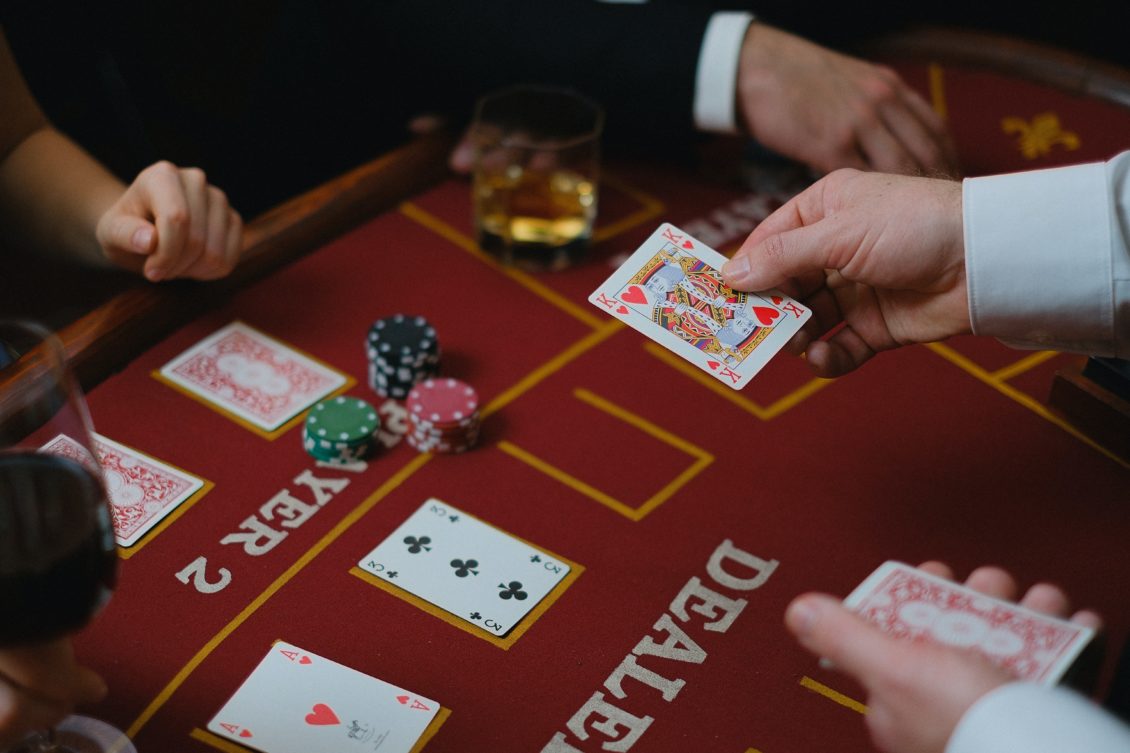Exploring Board Games: More Than Just Chance

When we think of gambling activities, the first images that often cross our minds are those of spinning roulette devices, card tokens clattering on felt tables, and cubes rolling across a gaming area. https://oke179.club While numerous consider these games as simple hobbies fueled by luck, a more profound exploration reveals a captivating blend of strategy, skill, and social interaction that raises them far beyond simple chance. Regardless of whether you are a experienced player or a curious newcomer, understanding the subtleties of these games can greatly enhance your experience and appreciation.
Gambling games have evolved over centuries, with various cultures contributing to their rich backgrounds and variations. From the intricate tactics of blackjack to the deception methods in poker, players engage in a contest of wits as much as a gamble on odds. This exciting interplay between chance and expertise creates a thrilling atmosphere that draws countless people to gambling establishments worldwide. As we delve into the world of card games, we will uncover the strategies that can shift the odds in your favor and the community elements that make these games a favored choice for leisure and interaction.
A Approach of Table Games
Table gaming often involve a blend of skill and luck, which makes them fascinating for participants who enjoy a challenge. Every title has their own set of rules and tactics that can affect the outcome. For instance, in games like blackjack, participants are obliged to use strategies like counting cards and grasping the probabilities to make smart decisions. This expertise can greatly improve the victory potential, differentiating experienced players from beginners who may depend entirely on chance.
In contrast, titles such as roulette may seem to be entirely based on luck, but tactical thinking can also play into the equation. Players can select between various wagering strategies, such as the Martingale strategy, where they increase their bets after losses. This method can establish a more controlled way to the activity. Understanding the odds of specific bets can also help players make smarter decisions on the roulette table, showcasing that even games of luck, strategy can enhance the experience.
Furthermore, poker stands out as a title that heavily focuses on strategy. In contrast to most gaming titles, poker merges skill, mental acuity, and chance. Players must also concentrate on the cards they are dealt but also consider their opponents actions and wagering patterns. Mastering principles like table position, pot odds, and interpreting bluffs is crucial for winning. This complexity of tactics in the game of poker often leads to a more immersive experience for players, where the decisions and abilities greatly impact the game’s results.
Grasping Chance and Ratios
In the realm of casino activities, likelihood and odds have a critical role in determining a gambler’s possible outcomes. Every activity has its own collection of rules that define how the probability of succeeding or losing is measured. For case, in games like 21, players have a chance to influence their ratios through strategy, whereas in matches like roulette, the results are purely dictated by chance. Grasping how these probabilities are calculated can greatly impact how a gambler deals with the game.
Odds are typically shown in two formats: ratio and decimal. Fractional odds indicate the ratio of the sum won to the amount bet, whereas numeric ratios show the overall payout for a successful wager, which includes the stake. For instance, if a game has ratios of 5 to 1, this implies that for every one unit bet, a gambler could gain five dollars if they win. Understanding how to read these odds enables gamblers to evaluate their possible winnings and make more wise decisions during gameplay.
Gamblers should also be conscious of the casino advantage, which is the casino’s inherent benefit over the gamblers. Each match has a different advantage, and grasping this concept is crucial for controlling one’s hopes and bankroll. Games with a reduced house edge, such as 21 and baccarat, typically offer better odds for players compared to activities like slots and lottery. By acknowledging the relationship between probability, ratios, and the house edge, players can improve their gaming experience and strategize more effectively.
The Social Aspect of Casino Table Games
Casino games at gaming establishments are often seen as a center of social interaction, drawing participants together in a shared experience that extends far past the mere act of playing games. The atmosphere at a blackjack table can be electric, with players engaging not only with the game itself but also with one another. Joy, cheers, and, sometimes, friendly banter create connections that enhance the overall enjoyment of the gaming experience. This communal aspect can turn a alone endeavor into a dynamic gathering, making casino games particularly appealing.
One of the intriguing elements of table gaming is the way it cultivates friendship among participants. Whether it’s teaming up to defeat the dealer at a craps table or sharing stories between hands in a card game, the environment encourages communication. Participants often share advice or tactics, creating a sense of togetherness that enhances the fun. This social dynamic can make new gamblers feel included and less intimidated by the competitive nature of casino games. As the game progresses, friendships may form, leading to a sense of connection that keeps players returning to the table.
Moreover, the social aspect of table gaming extends beyond just the players. Casino staff play a vital role in facilitating interaction and maintaining the flow of the game. Their ability to engage players with warm dialogue and their expertise in running the table can create an inviting atmosphere. This connection between players and staff adds another layer of enjoyment, where gamblers feel bonded not only to one another but also to the staff. Such interactions are often what make the experience memorable, as participants leave with tales to tell and relationships made, reinforcing the notion that gaming at tables are truly about something greater than luck.